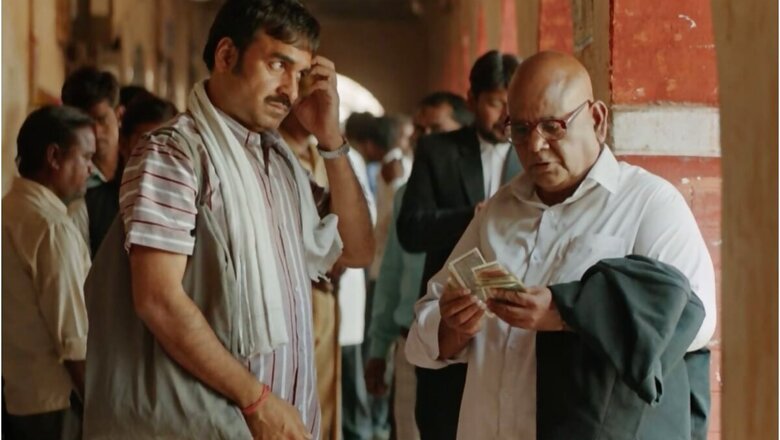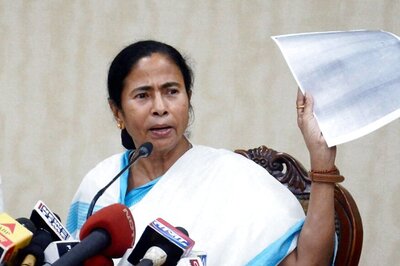
views
Kaagaz
Director: Satish Kaushik
Cast: Pankaj Tripathi, Monal Gajjar, Mita Vashisht, Amar Upadhyay, Satish Kaushik
What I really liked about Kaagaz, now streaming on ZEE5, was Pankaj Tripathi’s performance. Honestly, I had been a tad bored with his style that had remained much the same in film after film: his soft dialogue delivery, his unassuming mannerisms and even his looks. Whether he played a villain or a parent, his tone and volume were uniformly the same. But in Kaagaz – helmed by Satish Kaushik (who also portrays a lawyer in the movie) – Tripathi’s Bharat Lal unleashes a wide gamut of emotions which range from the subtle and soft to the fiery. As a father of two children and husband (wife essayed by Monal Gajjar), he is sweet, but later on, when he stands cheated and helpless, he transforms into a man of steel with a never-say-die attitude; his dialogue delivery and demeanour matching this transformation.
Kaagaz is a satire narrated with sincerity and passion, and takes on the bureaucracy by its horns, so to say. The film is a movingly powerful reflection of how India’s poor continue to be treated even today – almost 74 years after the country won its independence from decades of foreign dominance, first by the Mughals and then British. In a way, India’s poor, most of whom live away from urban conglomerations, remain as poor as they were and still face the brunt of a largely unfeeling and corrupt administration.
Bharat Lal’s problems begin when he gets egged on by friends and wife to expand his small band outfit. The group plays different instruments at marriages and even funerals. So, Lal decides that he must add to his little shop, and goes to a bank seeking a loan. The bank is fine with granting him one, but he must produce some security. Lal remembers that he has a small piece of land adjoining his uncle’s at a distant village. But when he reaches his uncle’s place, he is shooed away and told that he has been declared long dead. On paper.!
This has been one of the biggest banes in India; people “bumping off” their relatives by getting a declaration from the local administrative office. A piece of paper (Kaagaz) that literally turns a man into a corpse!
And then begins, Lal’s tryst with his unbelievably shocking destiny. He bangs many doors, gets the media to write about his plight, even meets a politician (Mita Vashisht) and in the end forms a political party. All this while, and it takes years, his band gets disbanded, his income and savings hit rock bottom and his family suffers in silence.
Kaagaz looks at the way justice is meted out in this country, and how the poor and those without any political influence are relegated to a life of hurt and humiliation.
The movie does well in bringing this out, but where it falters is in the manner it seeks to narrate the story. It is so exaggerated that it begins to look silly. A greater control over the script may have made Kaagaz into something more authentic. It goes beyond the realm of parody, and a tighter leash on characterisations and scene conceptualisations could have gone a long way in turning Kaagaz into a more worthwhile watch.
Rating: 2.5/5
(Gautaman Bhaskaran is a movie critic and author of a biography of Adoor Gopalakrishnan)
Read all the Latest News, Breaking News and Coronavirus News here



















Comments
0 comment